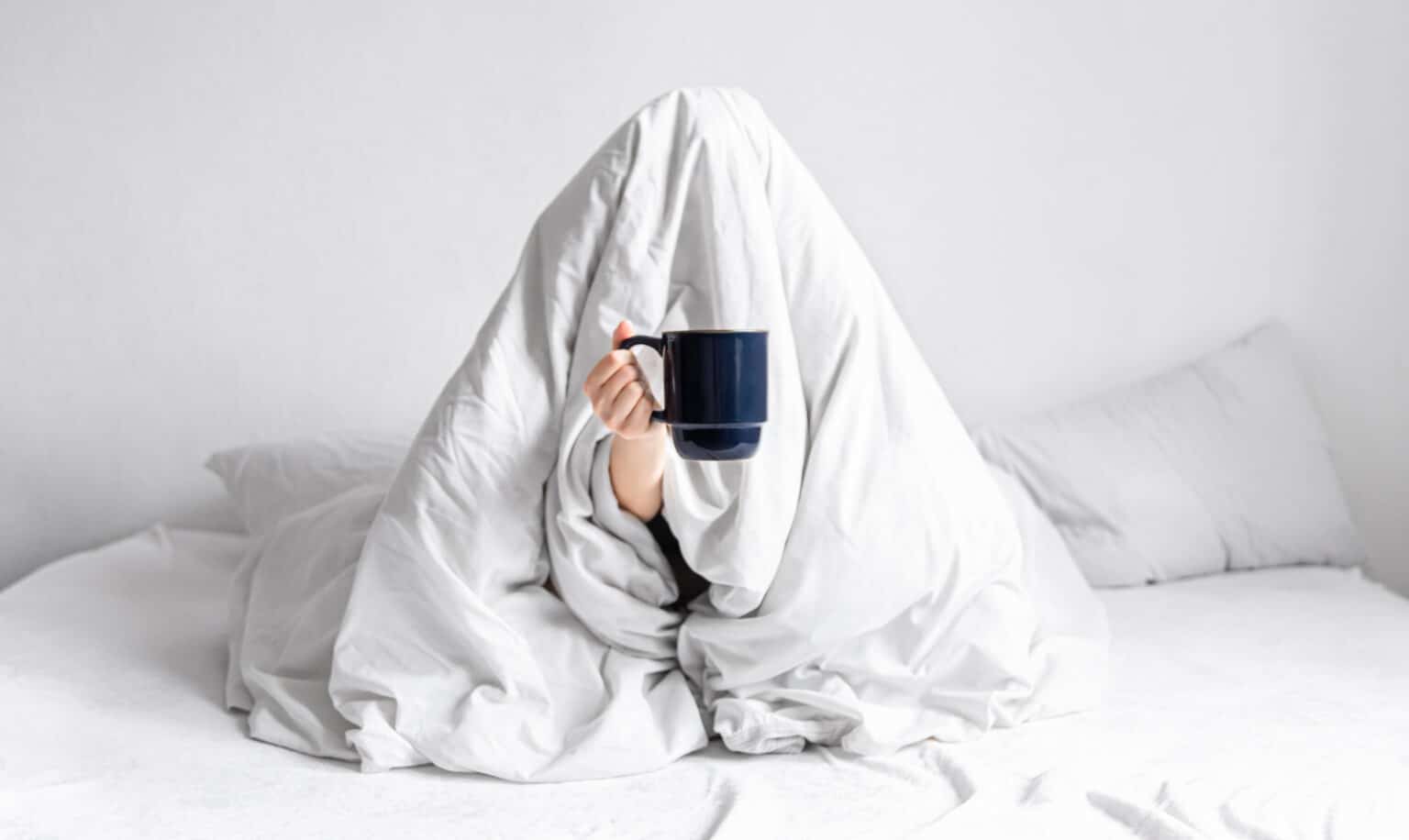In recent times, a new trend called “bed rotting” has emerged, gaining popularity on social media platforms like TikTok. The term refers to the act of spending prolonged periods in bed by choice, often accompanied by activities like watching TV or snacking. While taking time to recharge and relax can be beneficial, excessive bed rotting can have negative effects on mental health and sleep hygiene. In this article, we explore the potential consequences of bed rotting and the importance of maintaining a balance between rest and activity.

image source- breezyscroll
The Need for Balance:
Psychologists and experts emphasize the importance of balance in maintaining overall well-being. While it’s natural to enjoy a lazy day once in a while, spending excessive time in bed without engaging in productive or fulfilling activities can disrupt mood and increase stress. This behavior may be indicative of underlying mental health issues such as depression and anxiety. It is crucial to recognize the difference between occasional rest and ongoing avoidance of responsibilities or emotions.
The Impact on Mental Health:
Bed rotting can be a sign of underlying emotional distress or an attempt to escape from stressful situations. The act of staying in bed all day, particularly when it becomes a regular occurrence, may indicate the need for deeper introspection and addressing one’s mental health. Symptoms of depression and anxiety have been associated with excessive bed rotting, highlighting the importance of seeking professional help and utilizing healthier coping mechanisms.

source- India today
Effects on Sleep Hygiene:
From a sleep science perspective, bed rotting contradicts the principles of maintaining good sleep hygiene. The bed should ideally be reserved for sleep and intimacy, not for engaging in activities like working or watching TV. Spending excessive time in bed can disrupt the sleep-wake cycle, leading to difficulties falling asleep or staying asleep. Sleep experts recommend getting out of bed if one is unable to fall asleep within 30 minutes or experiences prolonged awakenings during the night.
Promoting Healthy Coping Strategies:
Engaging in activities beyond bed rotting is crucial for maintaining mental well-being and developing effective coping skills. Recharging activities like spending time with friends, exercising, practicing mindfulness, or engaging in hobbies can help manage stress and prepare individuals to face daily challenges. Reading a book, journaling, or exploring therapy options can also be beneficial alternatives to prolonged bed rotting, as they provide opportunities for self-reflection and personal growth.
While occasional rest and relaxation are important aspects of self-care, excessive bed rotting can have detrimental effects on mental health and sleep hygiene. It is essential to maintain a balance between rest and activity, ensuring that prolonged periods in bed are not used as a means to avoid underlying emotional distress. Seeking professional help and adopting healthier coping strategies can significantly contribute to overall well-being. By prioritizing self-care activities that energize and rejuvenate, individuals can lead healthier and more fulfilling lives.













